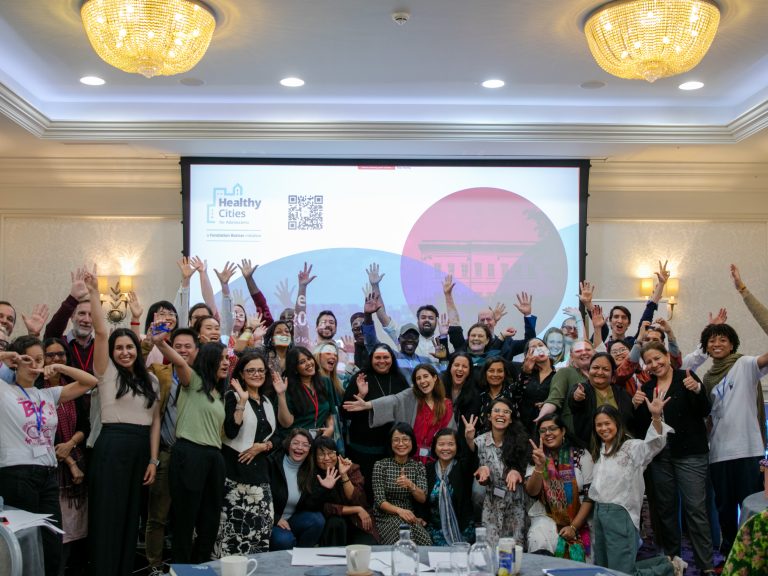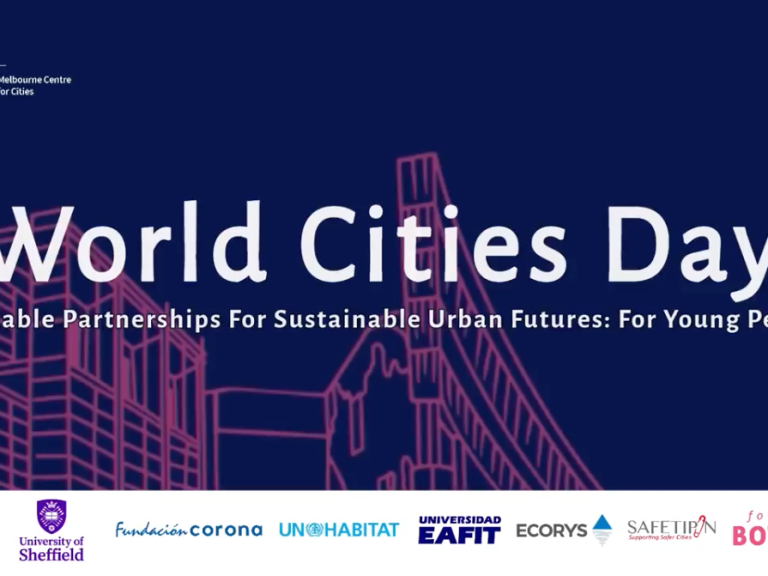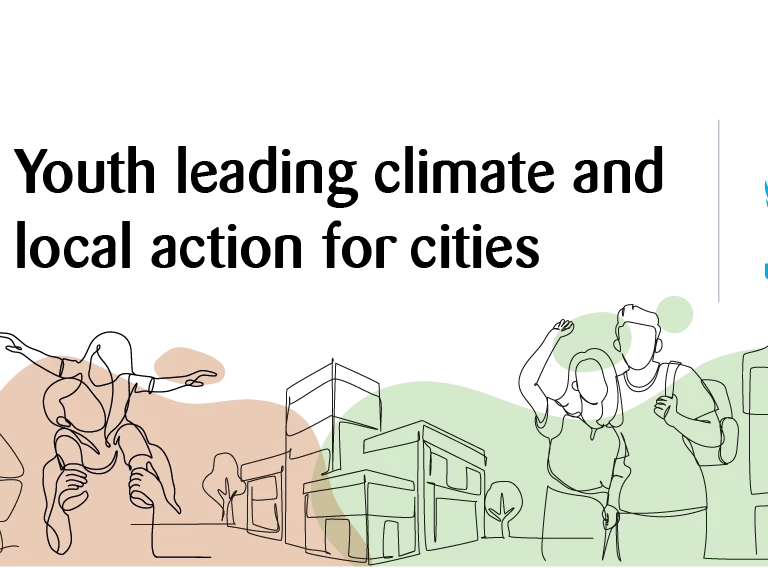HCA-II plays an active role in World Urban Forum
The World Urban Forum, a signature bi-annual conference on sustainable urbanisation convened by the United Nations Human Settlements Programme (UN-Habitat), was held in Cairo, Egypt, from 4 to 8 November 2024. Attracting over 25,000 participants from 182 countries, the conference focused on the theme “It All Starts at Home”.
Heads of state, ministers, government representatives, multilateral organisations, civil society advocates including international non-governmental organization (INGOs), Civil society organisations (CSOs), grassroots agencies, and businesses participated in the event alongside urban planners, architects, and youth advocates to discuss solutions to pressing urban challenges and call for collective action.
The Healthy Cities for Adolescents (HCA)-II programme was represented by nearly 30 participants, comprising representatives from nine projects and the global team, as well as youth representatives from Senegal, Ecuador, Ghana, and Colombia. The forum served as a shared space and gave the HCA-II community an opportunity to connect with local and global urban actors, and advocates of localising the UN’s Sustainable Development Goals (SDGs).
HCA-II Partnerships and Advocacy Lead, Joyati Das, said the World Urban Forum was special for the HCA-II team because it was “our first global event where we were able to collectively advocate for a just and equitable urban future for young people. As a group, we were able to strengthen several national-level alliances as well as global connections such as the World Health Organisation (WHO) and UN-Habitat. As a group we shared our lived experiences in intermediary cities and meaningfully contributed to dialogues for sustainable urbanisation, calling for inclusion of youth voices for safe and healthy cities for adolescents, and their communities.”
Youth representatives from HCA-II participated in different sessions at the event. They particularly appreciated the experience of engaging in activities as well as opportunities for collaboration and cross-learning. Perpetual Afefa Keh, representing the HCA-II “Young and Safe” project in Ghana, mentioned that “young people are the future leaders and are required to contribute to the society we all wish to see. To do this, we need wider knowledge and skills where the World Urban Forum comes to into play. Events like this one provide a platform for young people to amplify their voices and perspectives. Young people bring fresh and current ideas to the table, promoting sustainable growth because the change we contribute to would be held up by us since there is a feeling of ownership.”
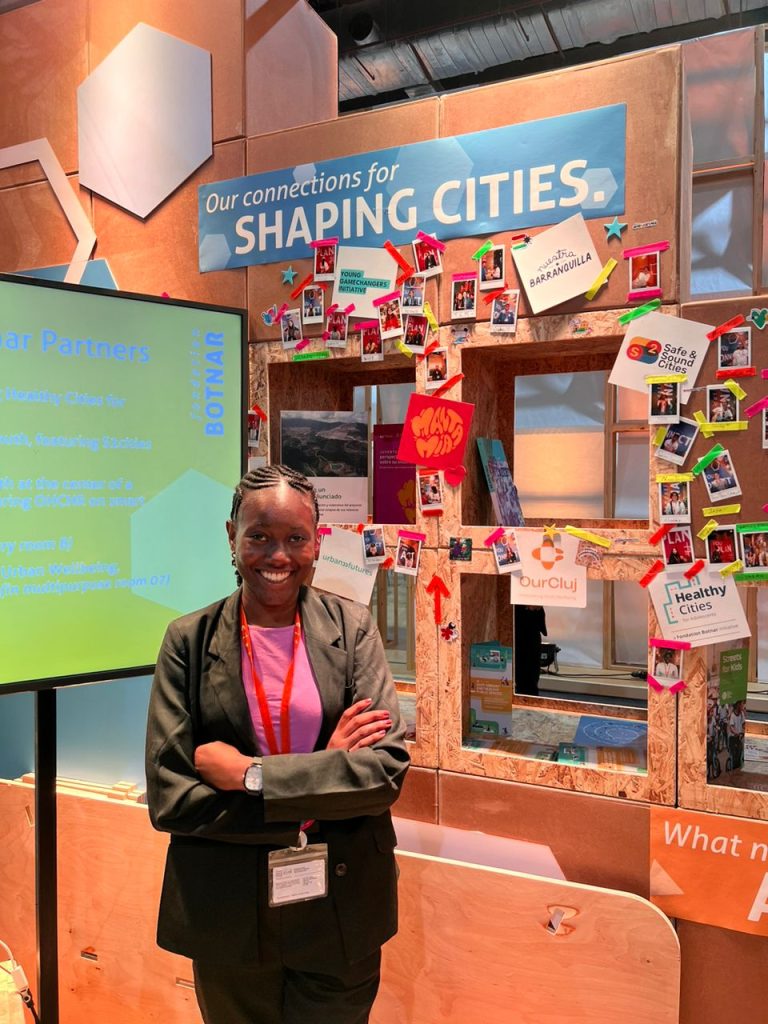
HCA-II projects on display
Two HCA-II projects showcased their work in separate sessions. On 5 November, the “Safe, Vibrant and Healthy Public Spaces” project from India presented a session “Cities for Adolescents – the NextGen Agenda”. This session drew from the World Resources Institute (WRI)-India-led consortium’s experiences with the development of the Public Spaces Assessment Framework. The framework was co-created with adolescents, parents, communities, and multi-level government bodies in the cities of Jaipur (Rajasthan) and Bhubaneswar (Odisha). The session featured a panel discussion with representatives from the project consortium, the HCA-II team and the WHO, delving into meaningful adolescent engagement, co-creation and partnerships with multiple stakeholders, and pathways to sustainability. The session also explored ways to link local action with the global agenda for the realisation of SDGs, particularly SDG 11 related to making cities inclusive, safe, resilient and sustainable.
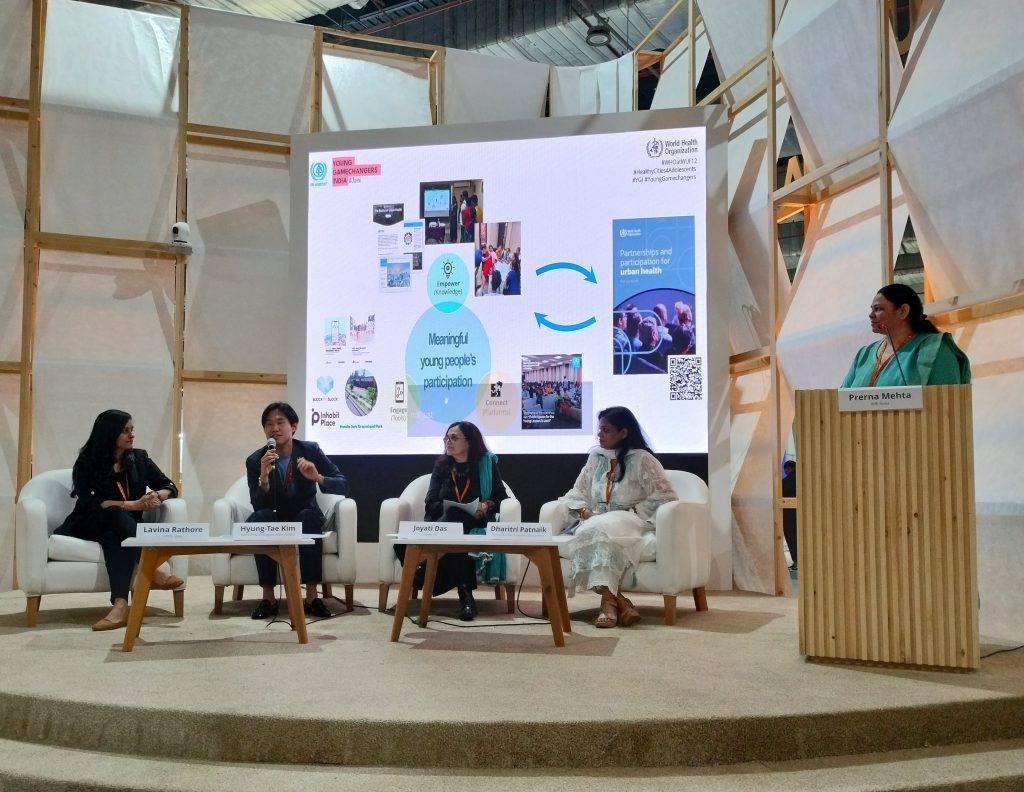
The “Vivo Mi Calle” project, led by Fundación Despacio, organised a training event with Università degli Studi di Palermo titled “Enhancing Public Participation in Urban Design through Digital Tools and Community Engagement”. The event provided insights into participatory methodologies with adolescents and other stakeholders for transforming public spaces. The session explored how methodologies could be made context-specific and incorporate digital strategies, where applicable.
Strengthening global partnerships
The HCA-II global team and projects met with the Urban Health team of the WHO to explore local-to-global collaboration opportunities to strengthen adolescent health approaches in cities. The WHO presented its strategic priorities for urban health, tools related to capacity assessment, and policy briefs focusing on cross-cutting themes to promote urban health. HCA-II projects shared the contextual approaches employed in their cities. Participants discussed areas of alignment and potential areas of collaboration moving forward.
The HCA-II community also interacted with other participants at the forum, learning more about innovative local approaches to sustainable urbanisation across different sectors. This also provided an important opportunity for strengthening local-to-global connections and cementing the role of adolescents in building healthy cities for sustainable urbanisation.
Moving forward
The forum emphasised the need to strengthen partnerships and investment for local-global solutions, touching on themes including housing, energy, climate, public spaces, gender, and digitisation. The need for youth leadership was also highlighted by several global leaders, with young people demonstrating examples of their work in sustainable urbanisation throughout the event.
For HCA-II, the forum provided an opportunity to link the work of projects to global calls for action, while laying the foundations for new partnerships to advocate for healthier cities for adolescents and youth. Particularly relevant to HCA-II are the calls for achieving global goals through effective localisation that is contextual and driven by meaningful collaboration, along with the co-production of data with stakeholders at the grassroots level.
At the same time, representation of local communities and stakeholders with decision-making power has been emphasised, as has the need for stronger collaboration and coalition-building for progress at the local, national, and global levels. With a consortium approach leveraging multi-sectoral and multi-level partnerships, coupled with a focus on adolescent-centred context-specific solutions, HCA-II projects are well-placed to work towards these calls to action.
Follow us for more updates
To stay informed about our latest programme and project updates follow HCA-II on Facebook and X.
